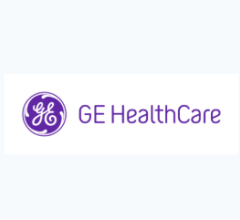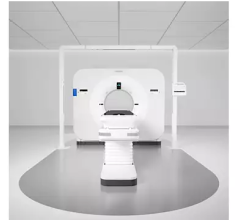
Anne Hubbard, MBA, director of health policy for the American Society for Radiation Oncology (ASTRO), explains the details of the proposed radiation oncology alternative payment model (APM), and issues ASTRO has raised with the model, at the 2019 ASTRO annual meeting in Chicago.
September 18, 2019 — During its annual meeting in September, the American Society for Radiation Oncology (ASTRO) issued a response to the Centers for Medicare and Medicaid Services’ (CMS) request for comment on a proposed advanced alternative payment model (APM) for radiation oncology. The statement, attributed to Paul Harari, M.D., chair of the ASTRO board of directors, listed several areas of concern where the association felt the proposed model falls short.
"ASTRO appreciates CMS' decision to move forward with an alternative payment model for radiation oncology and believes there are some positive elements in the proposed Radiation Oncology Model (RO Model). We are concerned, however, that the proposal by the agency falls short of meeting three key goals established by ASTRO for the successful development of an alternative payment model,” the statement says. Harari goes on to state that the APM should:
-
Reward radiation oncologists for participation and performance in quality initiatives that improve the value of healthcare for patients;
-
Ensure fair, predictable payment for the radiation oncologist in both hospital and freestanding cancer clinics to protect cancer patients' access to care in all settings; and
-
Incentivize the appropriate use of cancer treatments that result in the highest quality of care and best patient outcomes.
“We recognize that CMS has sought to align some of the proposal with the Radiation Oncology Alternative Payment Model concept paper that ASTRO submitted in April 2017. Key elements from that paper are found in the proposed rule including the prospective payment; the episode trigger mechanism, timeline and clean period; establishment of distinct professional component and technical component payments; the inclusion of all modalities of treatment; and key quality measure elements. We thank the Agency for recognizing the effort that ASTRO has put into the development of an APM for radiation oncology,” Harari continued.
“However,” he added, “an ASTRO analysis estimates that the RO Model would cut payments to required participants by approximately $320 million during the five-year period — an excessive amount that would undermine this unique opportunity. For the model to be successful, ASTRO recommends specific, significant changes to the proposal that will incentivize the use of high-quality, efficient radiation therapy treatments that drive value-based reform while still providing savings for Medicare.
The ASTRO statement provides a summary of the key issues and corresponding recommendations from the association, including:
- Mandatory Participation. Requiring participation representing 40 percent of radiation oncology episodes goes too far for an untested model, the statement says. ASTRO recommendation: CMS should launch the model as voluntary, then transition to mandatory on a limited basis, including opt-outs for low-volume practices and hardship exceptions.
- National Case Rates. The ASTRO statement says there are serious flaws in the calculation approach for the national case rates that would result in significant and unfair payment penalty for participants. “We are concerned that the methodology fails to appropriately account for a range of complex clinical scenarios and average treatment costs for many clinics,” the statement reads. ASTRO recommendation: CMS must include some physician fee schedule costs, properly attribute palliative care cases and ensure adequate payments for patients receiving standard-of-care multi-modality treatments, such as combination therapy for gynecological cancer.
- Discount Factor and Efficiency Adjustment. According to ASTRO, these proposed payment adjustments could result in significant cuts to all participants and unfairly disadvantage “efficient” practices. ASTRO recommendation: CMS should adjust the efficiency factor to avoid penalizing efficient practices and scale back the discount factors, which put at risk patient access by causing significant financial issues for such a capital expenditure intensive specialty.
- APM Incentive Payment. CMS' selective waiver of the 5 percent APM incentive payment on freestanding center technical payments undercuts the spirit and letter of MACRA's intent of encouraging providers to assume risk and participate in APMs, the association’s statement says. ASTRO recommendation: CMS should remove this waiver.
- Innovation. Innovation in radiation oncology has contributed greatly to increased cure rates and reduced side effects from treatment. Yet the ASTRO statement says the RO Model does not adequately account for the next generation of advances in the delivery of radiation oncology. Practices should be able to continue to invest in innovations that provide clinical benefit for patients. ASTRO recommendation: CMS should pay for new technology at fee-for-service rates and adopt a rate review mechanism for new service lines and upgrades.
- Burden. Finally, the statement from Harari says the proposed RO Model would heap additional administrative tasks and costly requirements on already burdened radiation oncology practices that are required to participate in the model. ASTRO recommendation: CMS should delay many of these requirements and rely heavily on recommendations from the radiation oncology community to ensure that only information that is most meaningful and least burdensome is collected.
“We believe the RO Model, with significant modifications, could represent a meaningful and viable first step toward enabling the field of radiation oncology to participate in the evolving world of health care payment reform as initiated by MACRA. We are committed to working with [CMS] to modify the model in such a way that it meets the stated goals," the statement concludes.
A copy of ASTRO's full response is available here. You can read the full proposed alternative payment model from CMS here.
For more information: www.astro.org


 June 12, 2025
June 12, 2025 








